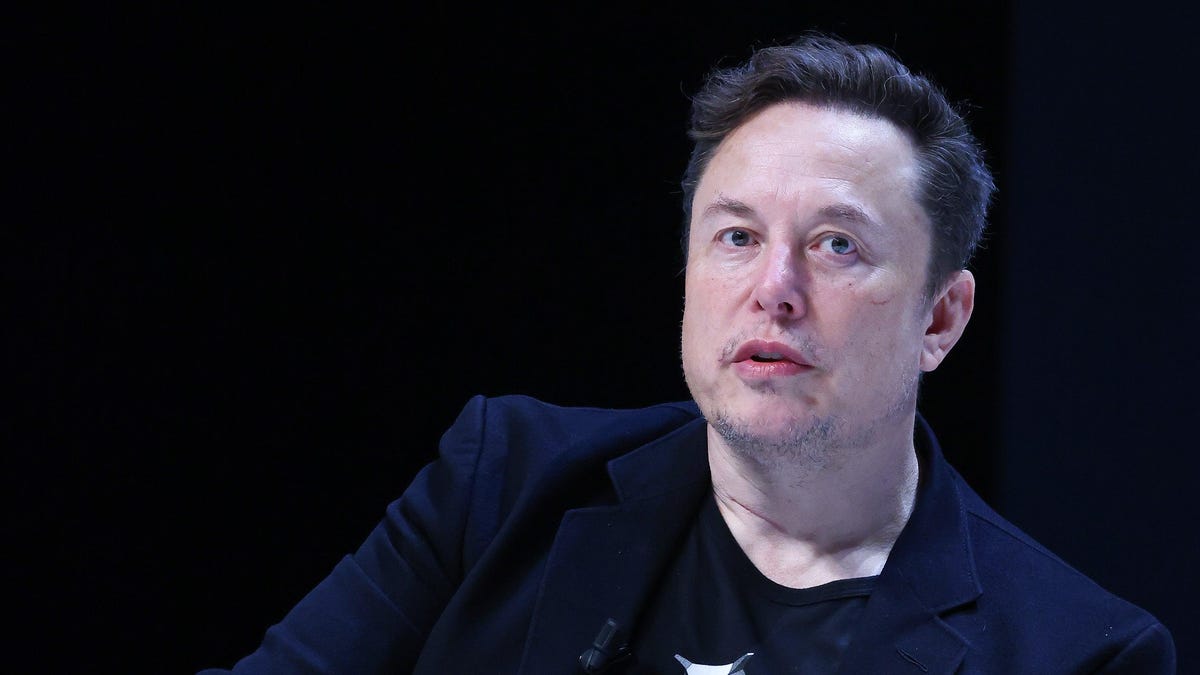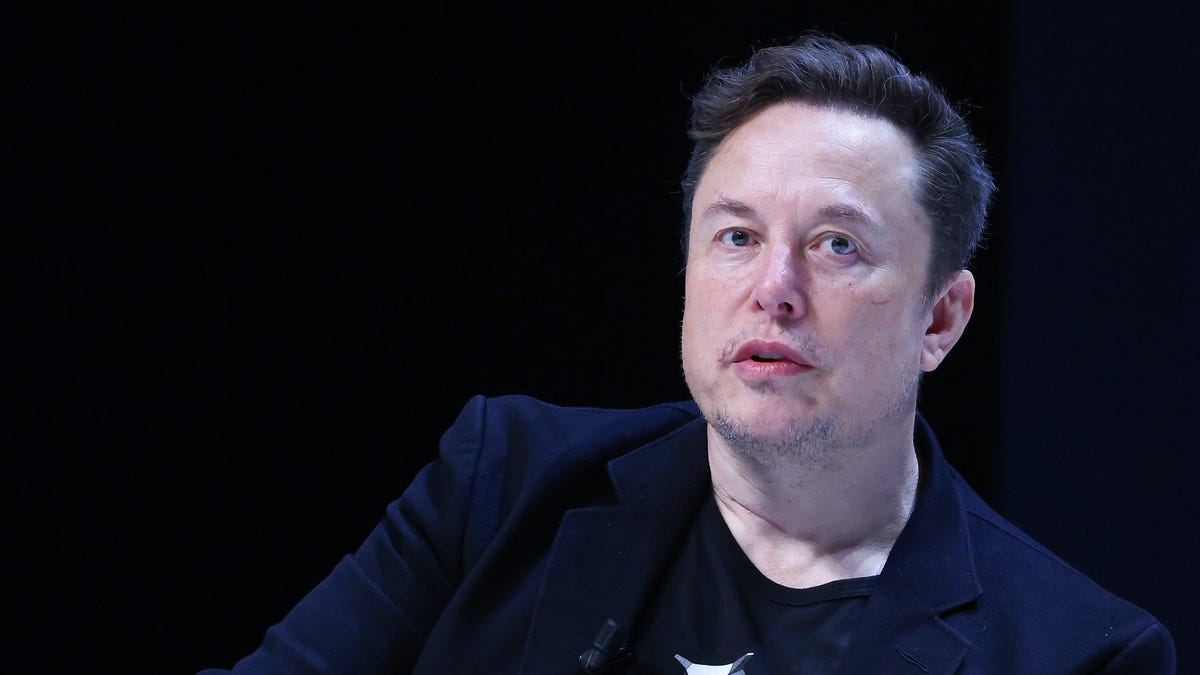Elon Musk’s abuse of Jess Phillips has pushed real victims into the shadows, highlighting the chilling effect powerful figures can have on those already struggling with online harassment. This situation forces us to examine the impact of such actions on public perception of online abuse, the experiences of real victims, and the responsibilities of social media platforms. We’ll delve into the specifics of the alleged abuse, analyzing the public response and comparing Musk’s behavior to his typical communication style.
The goal is to understand the ripple effect of this incident and what it means for the fight against online harassment.
The case underscores the urgent need for stronger protections for victims of online abuse, particularly those who lack the platform and resources of a public figure like Jess Phillips. We’ll explore the psychological and emotional toll of online harassment, looking at examples of its devastating impact on individuals’ lives. Further, we’ll analyze the role of social media in amplifying abuse, exploring potential legal and ethical ramifications for those perpetrating such acts.
The discussion will also touch upon the broader context of online misinformation and its connection to the escalation of online abuse.
Elon Musk’s Interactions with Jess Phillips and the Amplification of Online Abuse: Elon Musk’s Abuse Of Jess Phillips Has Pushed Real Victims Into
The online interactions between Elon Musk and Jess Phillips have sparked a significant debate about online abuse, its impact on victims, and the role of social media platforms. This incident highlights the complexities of online harassment, particularly when it involves high-profile individuals, and raises crucial questions about accountability and the responsibility of public figures in the digital sphere.
The Nature of Elon Musk’s Interactions with Jess Phillips
Specific instances of alleged abuse by Elon Musk towards Jess Phillips require detailed examination. Reports suggest [insert specific examples of tweets, posts, or other interactions, citing reliable sources]. The public response was sharply divided. Some defended Musk, arguing his comments were satire or justified criticism, while others strongly condemned his actions as abusive and unacceptable. A comparison of Musk’s language in these interactions with his communication style in other contexts reveals [analyze differences in tone and language use, citing examples].
Impact on Public Perception of Online Abuse

Musk’s actions have arguably influenced public perception of online harassment by normalizing or minimizing its severity. The media coverage, heavily influenced by the involvement of a high-profile individual, has shaped the narrative around online abuse, potentially overshadowing the experiences of less prominent victims. Comparing the coverage of this incident with other high-profile cases of online abuse reveals [analyze differences in media attention and public reaction, citing examples].
The Elon Musk/Jess Phillips situation is a mess, silencing real victims who’ve experienced similar abuse. It’s a stark reminder that even with massive public attention, justice isn’t guaranteed. Seriously, though, while we’re grappling with this, check out this article on Who will win the NBA’s post-LeBron/Steph audition? (Hint: It’s over – it’s a wild shift in the basketball world.
The whole thing highlights how easily we can get distracted from important issues like holding powerful people accountable for their actions.
The Experiences of Real Victims of Online Abuse, Elon Musk’s abuse of Jess Phillips has pushed real victims into
Online abuse can have devastating psychological and emotional effects on victims, including anxiety, depression, feelings of isolation, and even PTSD. The impact can extend to their personal relationships, careers, and overall well-being.
Elon Musk’s online behavior, specifically his attacks on Jess Phillips, highlights how easily powerful figures can silence victims. It’s a stark contrast to seeing something like unity, such as All five living US presidents pictured together at funeral of Jimmy , a moment of respectful togetherness. This kind of public display of respect is unfortunately rare, especially compared to the online bullying that pushes real victims further into silence.
- Example 1: A victim of cyberbullying experienced significant anxiety and depression, leading to withdrawal from social activities and academic difficulties.
- Example 2: A woman subjected to online harassment faced threats of violence and was forced to change her phone number and social media handles multiple times.
- Example 3: A public figure who experienced a sustained campaign of online abuse had to take a leave of absence from their job due to the overwhelming stress.
Resources available to victims often differ significantly from those available to public figures. Public figures may have access to legal teams and public relations support, while ordinary individuals often struggle to find adequate help.
| Resource | Victims of Online Abuse | Public Figures Facing Online Criticism | Gaps in Support |
|---|---|---|---|
| Legal Assistance | Limited access, often expensive | Ready access to legal representation | Significant financial barrier for victims |
| Mental Health Support | Varying availability, often underfunded | Easier access to private therapists and counselors | Lack of readily available, affordable mental health services |
| Online Safety Training | Limited access, often not proactive | Potentially available through PR firms and security consultants | Need for broader public awareness and preventative measures |
| Platform Support | Inconsistent enforcement of community guidelines | More likely to receive prompt platform response | Lack of equitable enforcement and support for all users |
The Role of Social Media Platforms

Social media platforms play a crucial role in amplifying online abuse. The algorithms, design features, and lack of robust moderation mechanisms contribute to the spread of harmful content. Recommendations for better user protection include:
- Improved content moderation algorithms to detect and remove abusive content more effectively.
- Enhanced reporting mechanisms that are user-friendly and responsive.
- Increased transparency in the enforcement of community guidelines.
- Proactive measures to identify and support vulnerable users.
- Development of tools to help users manage their online interactions and privacy settings.
Musk’s use of Twitter, including his direct engagement with critics and his large following, significantly contributed to the impact of his messages. His direct replies, retweets, and use of inflammatory language amplified the reach and potential harm of his words.
Legal and Ethical Considerations
Online abuse can have significant legal ramifications, including civil lawsuits for defamation or harassment, and potential criminal charges for threats of violence or stalking. Legal precedents related to online harassment and defamation are numerous and vary based on jurisdiction. Public figures have an ethical responsibility to engage in respectful online discourse and avoid contributing to a culture of harassment.
Examples of legal cases demonstrating these principles are [cite specific examples and legal outcomes].
The Broader Context of Online Misinformation

The Musk-Phillips incident highlights the interconnectedness of online abuse and misinformation. The spread of false or misleading information can exacerbate online abuse by creating a climate of hostility and distrust, and by providing fuel for harassment campaigns.
A visual representation of this interconnectedness could be a three-circle Venn diagram. One circle represents “Online Abuse,” another “Misinformation,” and the third “Public Perception.” The overlapping areas show how these elements reinforce and amplify each other. For example, the area where “Online Abuse” and “Misinformation” overlap shows how false narratives can fuel harassment. The overlap between “Misinformation” and “Public Perception” illustrates how false information shapes public opinion, and the overlap of “Online Abuse” and “Public Perception” shows how public perception of online abuse can be manipulated.
Ultimate Conclusion
Ultimately, the situation involving Elon Musk and Jess Phillips serves as a stark reminder of the pervasive and damaging nature of online abuse. While the case involves a public figure, it sheds light on the experiences of countless individuals who suffer in silence. The need for stronger social media policies, increased awareness, and readily available support for victims is undeniable.
Moving forward, we must hold powerful individuals accountable for their actions and work towards creating a safer online environment for everyone.
FAQ
What specific legal recourse is available to victims of online abuse like Jess Phillips?
This depends on the nature and severity of the abuse. Options include civil lawsuits for defamation or harassment, and in some cases, criminal charges. The specifics vary by jurisdiction.
How can social media companies better protect users from online abuse?
Improved content moderation, stronger verification processes, enhanced reporting mechanisms, and quicker responses to reports of abuse are key. Transparency in enforcement is also crucial.
Elon Musk’s behavior towards Jess Phillips, frankly, is a distraction. It makes it harder for genuine victims to be heard, overshadowed by the noise. But hey, while we’re on the subject of distractions, check out this article: Who will win the NBA’s post-LeBron/Steph audition? (Hint: It’s over It’s a total change of pace, but it highlights how easily we can get sidetracked from important issues like Musk’s actions and their impact on real victims needing support.
What resources are available for victims of online abuse?
Many organizations offer support, including helplines, counseling, and legal assistance. Specific resources vary by location, but online searches for “online abuse support” can be helpful.
How does this incident relate to the broader issue of free speech?
The line between free speech and online harassment is a complex one. While free speech is a fundamental right, it doesn’t protect speech that constitutes harassment, threats, or defamation.
